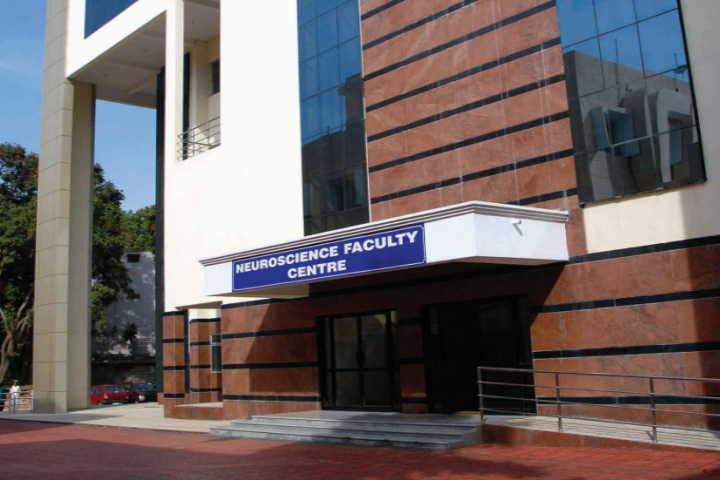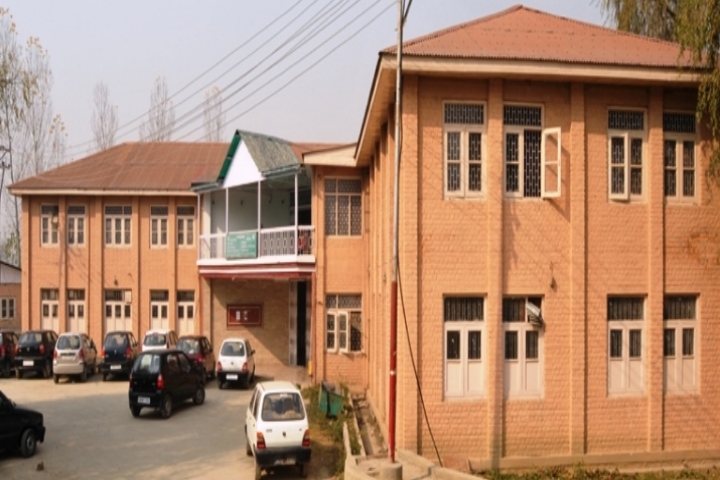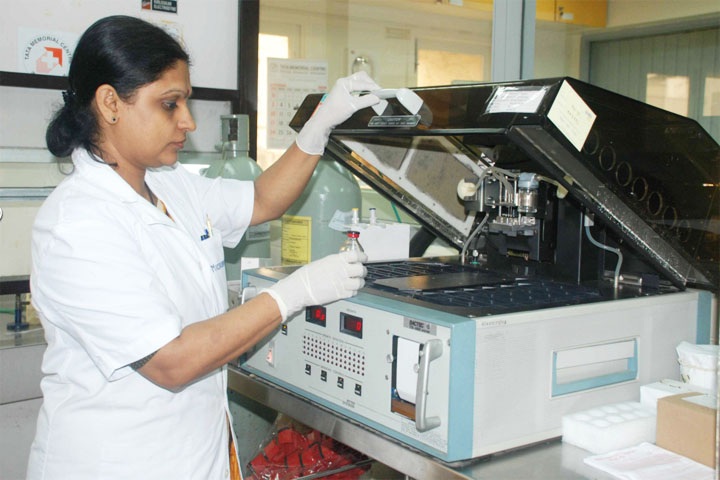
Anaesthesiology Course Details - Fees, Subjects, Syllabus, Duration, Eligibility, Career Scope
What is Anaesthesiology
Anaesthesiology is an important medical field that deals with giving anaesthesia to patients during surgery and other procedures. It helps control pain and keeps the patient safe and comfortable before, during, and after the operation. Anaesthesia can be general, regional, or local, depending on the type of treatment required.
Anaesthesiologists work as part of a surgical team in hospitals, emergency care units, and operating theatres. They closely monitor the patient's breathing, heart rate, and blood pressure, and make sure the patient wakes up safely after surgery. They also help in pain management and take care of critically ill patients in ICUs.
Anaesthesiology can be pursued through various undergraduate and postgraduate programmes in the medical and allied health fields. After completing a postgraduate degree, students may also opt for doctoral-level courses, such as a PhD. These qualifications open up career opportunities in hospitals, surgical centres, and ICUs, with average salaries ranging from Rs. 3 to 12 LPA.
Anaesthesiology Highlights
Anaesthesiology is a crucial medical field that focuses on pain relief, patient sedation, and vital monitoring during surgeries and medical procedures. With growing surgical needs and advancements in healthcare, the demand for skilled anaesthesia professionals is rising. Below are key highlights, including eligibility, duration, fees, job roles, and top recruiters:
| Particulars | Values |
|---|---|
Course Name | Anaesthesiology |
Degrees | |
Duration | UG: 3–4 years |
Eligibility | UG: 10+2 in Science with Biology, Physics, and Chemistry |
Admission Process | Merit-based or via entrance exams (NEET UG/PG, institutional exams) |
Average Fees | Rs. 50,000 to Rs. 76 lakhs |
Entrance Exams | NEET UG, NEET PG, INI CET, AEEL, NEET SS |
Average Salary | Rs. 3 to 25 LPA |
Job Roles | Anaesthesiologist, Anaesthesia Technician, Pain Management Specialist, Anaesthesia Assistant |
Top Recruiters | AIIMS, Apollo Hospitals, Max Healthcare, Fortis, Government Hospitals, Private Surgical Centres |
Specialisation or Similar Ones
Anaesthesiology offers a range of specialisations that focus on different aspects of patient care, surgical procedures, and critical care management. These specialisations allow professionals to handle complex surgical environments, pain management, and intensive care needs. The field also overlaps with emergency medicine and perioperative care. Some common specialisations and related fields include:
Critical Care Anaesthesiology | Cardiac Anaesthesiology |
Neuroanaesthesiology | Paediatric Anaesthesiology |
Obstetric Anaesthesiology | Pain Medicine |
Palliative Care Anaesthesia | Emergency Anaesthesiology |
Regional Anaesthesia and Acute Pain | Anaesthesia Technology and Monitoring |
Top Private Anaesthesiology Colleges in India
Private medical colleges in India offer Anaesthesiology courses with updated facilities, clinical practice, and trained faculty. These colleges help students build careers in surgery, critical care, and pain management. Graduates work in hospitals, trauma units, and ICUs. Below are some of the top colleges with course fees:
| Top Colleges | Fees |
|---|---|
Rs. 6.60 Lakhs | |
Rs. 65.34 Lakhs | |
Rs. 19.50 Lakhs | |
Rs. 3.01 Lakhs | |
Rs. 23.04 Lakhs | |
Rs. 76 Lakhs | |
Rs. 1.60 Lakhs | |
Rs. 1.51 Lakhs | |
Rs. 4.20 Lakhs | |
Rs. 72 Lakhs |
Note: The fee structure provided above can be for any particular Anaesthesiology course (Diploma/ UG or PG Degree).
Top Government Anaesthesiology Colleges in India
Government medical colleges in India offer Anaesthesiology courses at affordable fees with strong clinical exposure and quality training. These institutions provide hands-on experience in surgeries, intensive care, and emergency management. Graduates from these colleges often secure placements in public hospitals and healthcare institutions. Below are some top colleges with fees:
| Top Colleges | Fees |
|---|---|
Rs. 1,200 | |
Rs. 1,200 | |
Rs. 57,440 | |
Rs. 1.13 Lakhs | |
Rs. 94,500 | |
Rs. 2.05 Lakhs | |
Rs. 97,500 | |
Rs. 1.08 Lakhs | |
Rs. 1 Lakh | |
Rs. 4.52 Lakhs |
Eligibility Criteria (UG & PG) of Anaesthesiology
Eligibility for Anaesthesiology Technology courses varies by level, diploma, undergraduate, or postgraduate. UG and diploma courses require 10+2 with a science background, while PG courses need a relevant allied health or medical degree. Admissions are usually based on entrance exams or merit, depending on the institute's selection process.
Undergraduate Course
Eligibility for undergraduate courses in Anaesthesiology Technology varies across institutions but generally requires completion of 10+2 with a science background. Some institutes may conduct entrance exams, while others follow merit-based admission. Below is the general eligibility for UG Anaesthesiology Technology courses.
- Candidates must have passed 10+2 with Physics, Chemistry, and Biology from a recognised board.
- A minimum of 50 per cent aggregate marks in the qualifying subjects is generally required.
- Some colleges conduct entrance exams, while others admit students based on Class 12 merit.
- Candidates must meet age and medical fitness requirements as per institutional norms.
Postgraduate Course
Eligibility for postgraduate courses in Anaesthesiology Technology varies by institute but typically requires a relevant undergraduate degree in anaesthesia or allied health sciences. Some institutions may prefer candidates with clinical experience. Admission is usually based on entrance exams or merit. Below is the general eligibility for PG Anaesthesiology Technology courses:
- Candidates must hold a bachelor’s degree, such as MBBS, BSc or a related allied health science discipline from a recognised university.
- A minimum of 55 per cent aggregate marks is generally required.
- Prior clinical experience may be considered an advantage or requirement depending on the institution.
- Admission is through entrance tests, academic performance, or institutional interviews and counselling rounds.
Entrance Exams for Anaesthesiology
Admission to Anaesthesiology Technology courses at the diploma, undergraduate, and postgraduate levels often involves qualifying entrance exams that evaluate a candidate’s academic background and subject proficiency. These exams are crucial for securing admission to reputed institutions offering anaesthesia-related programmes. Below are some recognised entrance exams for Anaesthesiology Technology:
| Exam Name | Conducting Body | Exam Schedule |
|---|---|---|
National Testing Agency (NTA) | ||
National Board of Examinations (NBE) | ||
AIIMS Delhi | ||
National Board of Examinations (NBE) | ||
Amrita Vishwa Vidyapeetham | - |
College Predictors VIEW ALL
Scope of Anaesthesiology in India and Abroad
Anaesthesiology offers a vital role in modern healthcare, with professionals supporting surgical teams by ensuring patient comfort and safety during procedures. With rising surgical volumes, the demand for skilled anaesthesia technologists and practitioners is increasing across hospitals, surgical centres, trauma care units, and critical care departments in both public and private sectors.
Beyond clinical roles, anaesthesiology professionals can work in areas like pain management, palliative care, and emergency medicine. Opportunities also exist in research, teaching, and medical device companies involved in anaesthesia equipment. With specialisation and experience, professionals can advance into supervisory roles or pursue postgraduate studies for further career growth.
Course Fees Anaesthesiology
| Minimum Fees | Maximum Fees | |||
|---|---|---|---|---|
| Private | Government | Private | Government | |
| UG | ||||
| PG | ||||
| DOCTORAL | ||||
| DIPLOMA | ||||
Course Subjects
The Anaesthesiology curriculum is designed to prepare students with essential knowledge and clinical skills across both undergraduate and postgraduate levels. UG courses cover foundational sciences, anaesthesia techniques, and patient care, while PG programmes focus on specialised surgeries, monitoring, and research. Below is the syllabus for both UG and PG courses.
Undergraduate Syllabus
In the undergraduate syllabus of anaesthesiology, students study core subjects such as anatomy, physiology, pharmacology, anaesthesia techniques, and perioperative care. The curriculum combines theory with clinical exposure and internships to build practical skills. This is the BSc in Anaesthesia syllabus from GITAM University.
Semester 1 | Semester 2 |
Introduction to Healthcare Delivery System in India, Community orientation and clinical visit, Research Methodology & Biostatistics | Anatomy-II (Part-A) |
Anatomy-I (Part-A) | Physiology – II (Part-B) |
Physiology-I (Part-B) | Biochemistry |
Introduction to Quality and Patient Safety | Medical Law and Ethics |
Basic Computers and Information Science | Clinical Posting |
English, Communication and soft skills | - |
Professionalism & Values | - |
Principles of Management | - |
Semester 3 | Semester 4 |
Basics of Patient Care | Pharmacology |
Microbiology | Basic techniques of Anesthesia |
Pathology | - |
Medicine | - |
Principles of Anaesthesia, Electronics & Technology | - |
Semester 5 | Semester 6 |
Basics of Surgical Procedures | Specialised Surgery and Anaesthesia Part I |
Perioperative patient care and Advanced anaesthetic techniques | Specialised Surgery and Anaesthesia part II |
Basic Intensive care, Complications of anaesthesia | - |
Semester 7 | Semester 8 |
OTT Internship | OTT Internship |
Postgraduate Syllabus
In the postgraduate syllabus, students learn advanced anaesthesia practices across various specialities, including cardiac, neuro, and orthopaedic surgeries. The curriculum blends theoretical knowledge with hands-on clinical education and research. It prepares professionals for complex surgical settings. Below is the MSc in Anaesthesia syllabus from M.S. Ramaiah University of Applied Sciences.
Semester 1 | Semester 2 |
Pre-Operative Patient Assessment | General Surgery and Anaesthesia (Theory and Practical) |
Cardiovascular and Non-Cardiovascular Monitoring | Vascular and Microvascular Surgery |
Clinical Education-1 | Clinical Education-2 |
Research Methodology & Biostatistics | Discipline Specific Elective – Hospital Planning / Organisation Behaviour |
Discipline Specific Elective - Quality Assurance / Infection Control | - |
Semester 3 | Semester 4 |
Anaesthesia for Orthopaedic Surgeries | Anaesthesia for Cardiac Surgery (T) |
Chronic Pain Management | Anaesthesia for Cardiac Surgery (P) |
Plastic and Robotic Surgery Clinical Education-3 | Anaesthesia for Neuro Surgery (T) Anaesthesia for Neuro Surgery (P) |
Dissertation – Part 1 | Dissertation- Final |
Careers in Anaesthesiology
Anaesthesiology Technology offers rewarding career paths focused on patient care during surgeries, pain management, and critical care support. Professionals in this field work alongside anaesthesiologists to ensure patients are safely administered anaesthesia and monitored throughout medical procedures.
With increasing demand for surgical and emergency care, skilled anaesthesia technologists are needed in hospitals, trauma centres, ICUs, and day-care surgical units. They can also explore opportunities in pain clinics, research labs, medical equipment companies, or pursue higher education to advance into teaching, clinical research, or specialised anaesthesia care.
Upcoming trends
Anaesthesiology is evolving rapidly with the integration of advanced technologies and patient-focused care models. Innovations like automation in anaesthesia delivery, real-time monitoring, and personalised sedation plans are enhancing safety and efficiency. Below are some of the current trends in Anaesthesiology:
- Use of Target-Controlled Infusion (TCI) Systems for Precise Drug Delivery
- Integration of Ultrasound Guidance in Regional Anaesthesia
- Expansion of Enhanced Recovery After Surgery (ERAS) Protocols
- Development of Depth-of-Anaesthesia Monitoring Tools
- Rise in Simulation-Based Anaesthesia Training for Skill Enhancement
- Growing Use of AI in Predictive Anaesthesia and Risk Assessment
- Focus on Multimodal Pain Management Techniques
- Increase in Day-Care Surgeries Requiring Short-Acting Anaesthetics
- Advances in Patient Monitoring and Ventilation Technologies
- Emphasis on Patient-Centred and Value-Based Anaesthetic Care
Job Profiles and Top Recruiters
Graduates in Anaesthesiology Technology work in hospitals, ICUs, emergency rooms, and operating theatres. They help give anaesthesia, check patient vitals, and manage pain during surgeries. Their work is important for keeping patients safe and comfortable. Below are some of the main job roles in this field:
| Job Roles | Description |
|---|---|
Anaesthesiologists | Anaesthesiologists are medical doctors who administer anaesthesia and manage vital functions during surgery. They ensure patients remain safe and pain-free before, during, and after procedures. |
Consultant Anaesthesiologist | Consultant Anaesthesiologists are senior doctors who plan and supervise anaesthesia during surgeries. They ensure patient safety and manage any complications during procedures. |
Anaesthesia Technicians | Anaesthesia Technicians prepare and maintain anaesthesia equipment and assist during surgical procedures. They support anaesthesiologists in monitoring patient vitals. |
Pain Management Specialists | Pain Management Specialists focus on diagnosing and treating chronic or acute pain using medications and anaesthetic techniques. They work in clinics, hospitals, and rehabilitation centres. |
Anaesthesia Assistants | Anaesthesia Assistants help anaesthesiologists by preparing patients, administering drugs under supervision, and monitoring recovery. They ensure patient comfort and safety throughout the anaesthesia process. |
Top Recruiters
- AIIMS
- Apollo Hospitals
- Max Healthcare
- Fortis
- Government Hospitals
- Private Surgical Centres
Average Salary
Salaries in Anaesthesiology Technology vary based on education, job role, experience, and workplace type. Professionals in private hospitals or surgical centres may earn more, while government jobs offer a steady income. With specialisation and experience, pay increases over time. Below are the average salary details across different roles in this field:
| Job Roles | Average Salary (LPA) |
|---|---|
Anaesthesiologists | Rs 14.8 LPA |
Consultant Anaesthesiologists | Rs. 25.3 LPA |
Anaesthesia Technicians | Rs. 2.8 LPA |
Pain Management Specialists | Rs. 23.1 LPA |
Anaesthesia Assistants | Rs. 3 LPA |
Source: AmbitionBox and 6figr
Required Skillset for Anaesthesiology
Professionals in Anaesthesiology require a mix of clinical knowledge, precision, and quick decision-making to manage patients during surgical procedures. The role demands a strong understanding of pharmacology, patient monitoring, and teamwork. Below are some essential skills required to excel in the field of Anaesthesiology:
- Proficiency in administering and monitoring anaesthesia techniques
- In-depth knowledge of human physiology and pharmacology
- Attention to detail for accurate dosage and patient monitoring
- Ability to respond swiftly in critical or emergency
- Communication and collaboration skills for working with surgical teams
- Empathy and patient care skills to ensure comfort and reassurance
Course Curriculum for Anaesthesiology
The Anaesthesiology curriculum combines foundational medical sciences with clinical training in anaesthesia techniques and perioperative care. It includes subjects focused on pharmacology, patient monitoring, critical care, and emergency management. Students gain practical skills through simulation labs, OT training, and hospital-based internships. Below are the major subjects typically included in the Anaesthesiology curriculum:
- Human Anatomy and Physiology
- Anaesthesia Pharmacology and Drug Management
- Principles and Techniques of Anaesthesia
- Patient Monitoring and Vital Signs Assessment
- Airway Management and Ventilation Techniques
- Intensive Care and Pain Management
- Operation Theatre Protocols and Instrumentation
- Emergency Medicine and Life Support Techniques
Popular Anaesthesiology Entrance Exams in India
Frequently Asked Questions (FAQs)
Question: What is the average fee for studying Anaesthesiology courses in India?
Answer :
The fee for undergraduate courses in Anaesthesiology is around Rs. 50,000 to Rs. 5 lakhs per year, depending on whether the institute is government or private. For postgraduate courses like MD Anaesthesiology, the fee can range up to Rs. 72 lakhs in top private medical colleges.
Question: What is the scope of anaesthesiology beyond operation theatres?
Answer :
Besides surgeries, anaesthesiologists play a crucial role in ICUs, pain clinics, emergency care, labour rooms, and palliative care units.
Question: What are the career opportunities after MD Anaesthesiology?
Answer :
Graduates can work as consultant anaesthesiologists, intensivists, pain specialists, or pursue super-specialisation through DM or DNB in areas like Critical Care or Cardiac Anaesthesia.
Question: What is the role of an anaesthesiologist during surgery?
Answer :
An anaesthesiologist is responsible for administering anaesthesia, monitoring vital signs, and ensuring the patient remains unconscious and pain-free throughout surgery. They also manage post-operative pain and any potential complications.



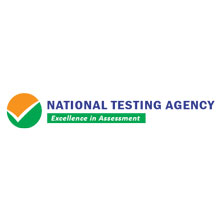


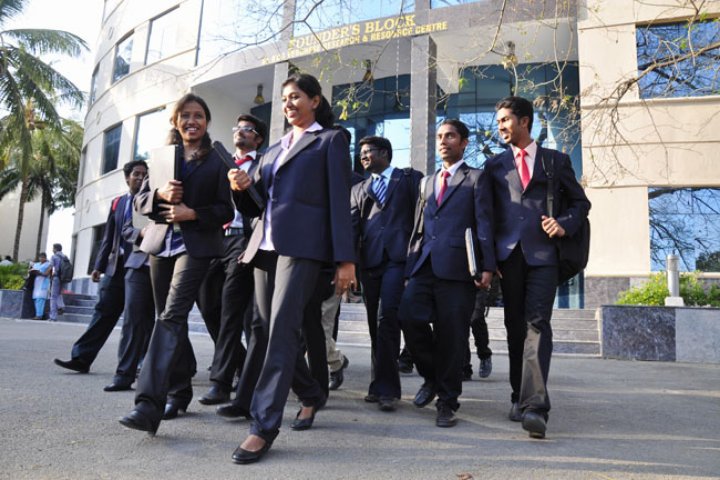
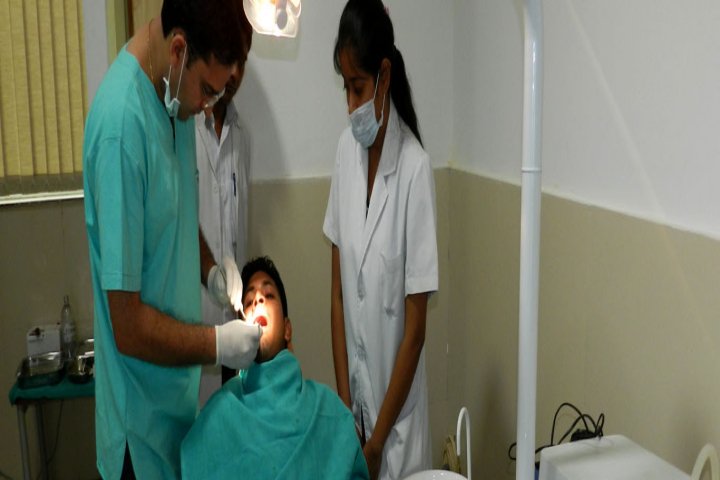
.jpg)
